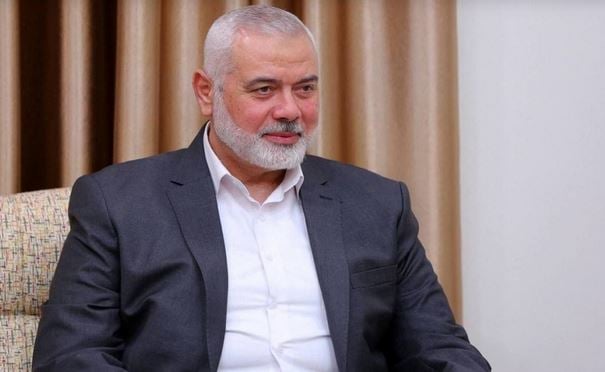World Reacts to Killing of Hamas Political Chief Haniyeh in Iran
Ismail Haniyeh, the political chief of Hamas, was killed in Tehran, Iran, marking a significant event in the Middle East’s ongoing geopolitical tensions. The Palestinian group, which governs the Gaza Strip, confirmed Haniyeh’s death, accusing Israel of being behind the attack. The Islamic Revolutionary Guard Corps (IRGC), Iran’s elite military force, also confirmed his death, highlighting the incident’s regional implications.
Haniyeh, a prominent figure in Hamas, had been in Tehran for meetings and discussions with Iranian officials. His death has sparked a wave of reactions from various international actors, reflecting the complex web of alliances and hostilities in the region.
Hamas has strongly condemned the killing, labeling it an act of aggression by Israel. The group vowed retaliation and called for solidarity among Palestinians, signaling a potential escalation in the conflict.

World leaders react to the killing of Hamas political chief Ismail Haniyeh in Iran.
While Israel has not officially confirmed its involvement, it has a history of targeting Hamas leaders, whom it views as terrorists. Israeli officials have remained silent on the specifics of the operation but are likely on high alert for possible reprisals from Hamas or other allied groups.
Iran, a key supporter of Hamas, expressed outrage and blamed Israel for the attack. Iranian officials have called for international condemnation and reiterated their support for the Palestinian cause. This incident could further strain Iran-Israel relations and impact ongoing negotiations around Iran’s nuclear program and regional influence.
The U.S. response has been cautious, focusing on the potential implications for regional stability. The State Department has called for restraint from all parties involved, emphasizing the need to avoid escalating violence. The U.S. has a complex relationship with both Israel and Iran, and this event adds another layer of complexity to its Middle East policy.
The United Nations has expressed concern over the potential escalation of violence following Haniyeh’s death. The UN Secretary-General has urged both sides to exercise restraint and avoid actions that could lead to further bloodshed. Several countries, including those in the European Union, have echoed these sentiments, calling for a peaceful resolution to the conflict.
Haniyeh’s killing is likely to have significant ramifications for the already volatile Middle East. Hamas may escalate its activities against Israel, possibly leading to a new cycle of violence in the Gaza Strip and beyond. Iran’s involvement and support for Hamas could also draw more regional actors into the fray, complicating diplomatic efforts to stabilize the region.
Global outcry as Hamas chief Haniyeh is assassinated in Iran’s capital.
The international community will be closely watching the developments, as any escalation could have broader implications, including impacts on global energy markets, given the region’s strategic importance. The situation underscores the fragile nature of peace in the Middle East and the challenges in achieving lasting stability amidst deep-seated political and ideological divides.
In summary, the killing of Ismail Haniyeh has added another layer of complexity to the Middle East’s geopolitical landscape, with significant implications for regional and international relations.